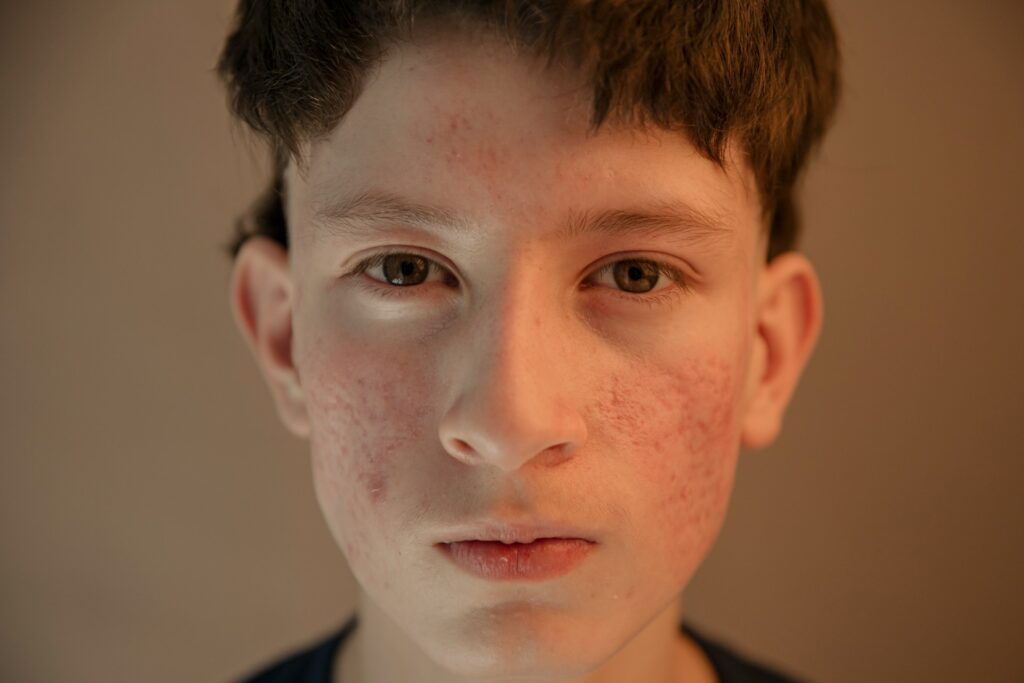Masking is one of the most common and successful coping strategies neurodivergent people use to get through their days.

In fact, lots of people with conditions like ADHD become experts in hiding their differences to fit into a world that doesn’t always make space for them. After a while, the constant effort to appear “normal” becomes second nature, even when it comes at the cost of their mental health. Certain phrases become reflexive, ways to explain away discomfort, blend in, or avoid drawing attention. If you’re neurodivergent, or know someone who is, these familiar lines might reveal just how deeply masking runs.
1. “I’m just tired, that’s all.”

This one often hides sensory overload, social exhaustion, or the aftermath of intense masking. It’s easier to say you’re tired than to explain how draining it is to perform neurotypical behaviour all day long. It sounds casual, but behind it is usually someone running on empty—trying to recharge without having to justify why they feel so burnt out after seemingly normal conversations.
2. “No worries, it’s fine.”

This line gets used even when it’s absolutely not fine. It’s a go-to phrase to avoid confrontation, smooth things over, or keep from sounding “difficult.” Neurodivergent people often use it to downplay distress that others might not understand. They might not actually be okay, but they definitely don’t want to explain why something small to everyone else feels huge to them.
3. “I’m just bad with people.”

This is often said with a laugh, as if it’s a quirky personality trait. In reality, it’s usually masking the deep discomfort or confusion neurodivergent people feel in social settings that aren’t built for their brains. Rather than unpack why social cues feel like decoding a foreign language, they’ll reduce it to this simple line, and most people won’t question it.
4. “I forgot—sorry, my brain’s all over the place.”

This softens the impact of executive dysfunction, which can be misread as laziness or carelessness. It helps avoid judgement while still hinting at the struggle underneath. It’s not just forgetting—it’s a brain that’s juggling too many tabs at once, often without the energy to keep them all open.
5. “I’m just awkward.”

A common self-deprecating mask that keeps people from looking too closely. What might actually be social anxiety, misinterpreted cues, or communication differences gets written off as harmless awkwardness. It allows people to feel relatable, while hiding how much effort goes into making social moments feel even halfway okay.
6. “I’m fine, just need a minute.”

This often comes out during a shutdown or right before one hits. Instead of admitting to overwhelm, overstimulation, or emotional shutdown, this one creates space to recover without having to explain everything in detail. It’s a calm way of saying “I’m not okay” while hoping no one probes further.
7. “I’m a bit particular.”

This is how many neurodivergent people downplay sensory sensitivities or strong preferences. Whether it’s the feel of a certain fabric, food textures, or noise levels, this phrase keeps things light, but the discomfort behind it is very real. Calling it “particular” is often easier than having to explain how a scratchy tag or flickering light can ruin an entire day.
8. “I just like doing it this way.”

This one shows up when routines or coping mechanisms get questioned. Stimming, repetition, or certain rituals might look odd to others, so this line becomes a shield to avoid deeper scrutiny. It’s not just preference, it’s regulation. However, explaining that isn’t always safe or easy, so they keep it surface-level.
9. “I’m just a perfectionist.”

This is how masking can look in work or school. The pressure to get everything right isn’t about ambition—it’s about avoiding criticism or being exposed as different. Mistakes feel dangerous, so hyper-performance becomes the mask. Behind perfectionism is often fear. Fear of being seen as incapable, even when the brain is working overtime just to keep up.
10. “I’m not great in big groups.”

This sounds like a simple personality quirk, but it often masks serious sensory or social overwhelm. Group settings can feel chaotic, unpredictable, and exhausting for a neurodivergent brain. Rather than explain how much energy it takes to participate, this line sets a soft boundary, even if no one realises it’s a boundary at all.
11. “I zone out sometimes, sorry.”

This one brushes off things like dissociation, sensory shutdowns, or attention slips caused by overstimulation. It’s a way to keep people from noticing how much their brain has to fight to stay “on.” It’s not daydreaming; it’s mental overload. However, saying that would require vulnerability most people don’t make space for.
12. “I don’t mind—whatever works for you.”

This is a classic masking phrase used to avoid decision-making anxiety or sensory discomfort. Choosing the restaurant, the music, the plan—it can feel overwhelming or risky. What if they pick something you can’t handle? So instead, you let others decide. You go along with the plan, even if it secretly means masking through the whole thing.
13. “I’m really forgetful lately.”

This sounds like a throwaway comment, but it often hides deeper executive dysfunction or time blindness. Tasks get dropped, messages go unanswered, and appointments are missed—not out of carelessness, but because the brain simply didn’t register the urgency. Calling it forgetfulness is a socially acceptable way to cover what’s really going on.
14. “I just get really into things sometimes.”

This one is used to mask hyperfocus or special interests—parts of neurodivergence that bring joy, but can be misunderstood or labelled as “too much.” It’s a soft admission of intensity, and it often comes with a small hope that the person listening won’t find it weird, or worse, mock it.
15. “I’m just a bit sensitive.”

This usually follows a reaction that seems big to others—tears, shutdowns, or strong emotional responses. However, it’s not about fragility. It’s about being wired to feel things deeply and pick up on things others might miss. Labelling it as “sensitive” keeps it socially digestible, even when it’s rooted in very real neurobiological responses.
16. “I get overwhelmed easily, sorry.”

This is often said after a visible struggle—meltdowns, irritability, going quiet. It’s a relaxed way to explain without unpacking the full weight of what “overwhelmed” really means. They’re not unable to cope. They just live in a world that often demands too much, too loudly, too fast.
17. “I need to cancel—I’ve got too much going on.”

This gets used to preserve spoons or avoid overstimulation without having to admit that socialising can feel physically and mentally painful after a certain point. Masking through a social event might mean days of recovery. However, instead of explaining that, it’s easier to blame the calendar and quietly retreat.
18. “Sorry if that came out weird.”

Neurodivergent communication often doesn’t follow expected scripts, so this line becomes a reflex. It pre-empts judgement. It softens what might be interpreted as blunt, overly detailed, or out-of-sync with the tone of the conversation. It’s a way of apologising for being different, even when there’s nothing wrong with how it was said.
19. “I just didn’t get the vibe.”

This line appears after missing a social cue or misunderstanding a subtle signal. Instead of admitting confusion, it gets framed as a vibe issue—a vague explanation that other people won’t question too deeply. It’s shorthand for, “I missed something, but I’d rather not feel weird explaining it.” Sometimes, it works, but it also keeps them masked and guarded.
20. “I’m used to it.”

This might be the heaviest phrase of all. It’s said when people ignore their discomfort, when their needs get brushed off, or when they’re forced to adapt—again. It sounds like resilience, but a lot of the time, it’s resignation. It means, “I’ve learned not to expect better.” For someone who’s masked their way through life, it might be the quietest sign they’re exhausted from constantly adjusting just to be accepted.


